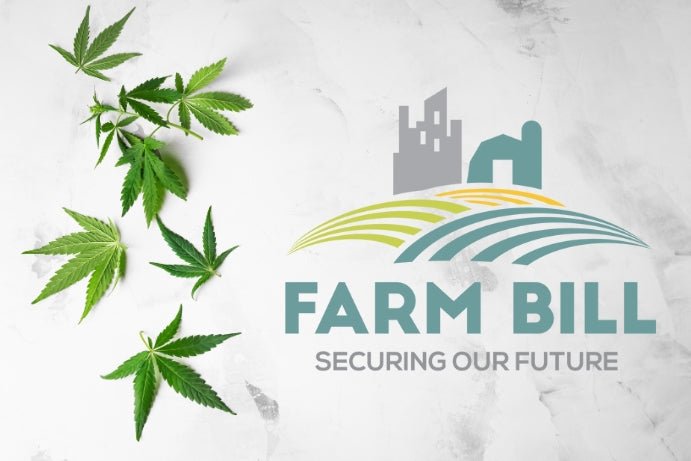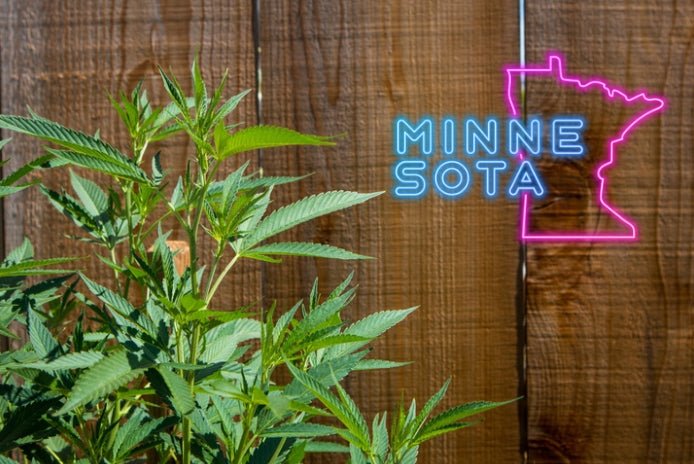While the new designation does not end the federal prohibition of marijuana, it does signify a massive shift in government policy toward the enigmatic and financially lucrative plant.

It is a new and significant day for advocates, stakeholders, and consumers of cannabis in the United States. On Tuesday, the U.S. Drug Enforcement Agency (DEA) finally made the decision to take the recommendation from the Department of Health and Human Services (HHS) and reschedule cannabis from a Schedule I narcotic to a Schedule III drug on the federal government's Controlled Substances Act.
Ultimately, the decision by the DEA to move cannabis to a Schedule III drug means the agency has generally accepted the findings from a nearly year-long scientific review into marijuana carried out by HHS before it shared its scheduling recommendation.
During that evaluation process, HHS found that cannabis "has a currently accepted medical use in treatment in the United States" and has a "potential for abuse less than the drugs or other substances in Schedules I and II."
The investigation also discovered that more than 30,000 healthcare professionals "across 43 U.S. jurisdictions are authorized to recommend the medical use of marijuana for more than six million registered patients for at least 15 medical conditions." With that overwhelming evidence, many industry advocates and pundits predicted it was just a matter of time before the DEA sided with the findings.
"There exists widespread, current experience with medical use of the substance by [health care practitioners] operating in accordance with implemented jurisdiction-authorized programs, where medical use is recognized by entities that regulate the practice of medicine," HHS said.
"There exists widespread, current experience with medical use of the substance by [health care practitioners] operating in accordance with implemented jurisdiction-authorized programs, where medical use is recognized by entities that regulate the practice of medicine."
- HHS Spokesperson
The agency's decision marks the end of more than 50 years of the plant's designation as one of the nation's most strictly prohibited drugs, along with other much more dangerous narcotics like heroin and meth.
The move also has major implications for state-legal cannabis businesses. According to a report by the Congressional Research Service (CRS), the reclassification could reduce penalties for certain marijuana-related offenses, enable cannabis businesses to deduct certain business expenses on their federal tax returns (280E), and expand research opportunities for scientists studying the health effects associated with cannabis.
However, the rescheduling could also have some negative impacts, such as mandating the roughly 15,000 marijuana dispensaries in the U.S. to register with the DEA, much like regular pharmacies do now. Likewise, those companies would have to fulfill rigorous reporting requirements, which many are averse to, and the agency is ill-prepared to handle.
The White House Office of Management and Budget (OMB) must still review and sign off on the DEA's proposal. However, with President Biden already strongly supporting the move, the review process will amount to a little more than a rubber stamp from the OMB.
Once the OMB officially approves the rescheduling, the DEA will be able to comment on its plan moving forward. In addition, the agency would then be able to publish the final rule following a public comment period and a review by an administrative judge. According to the Associated Press, the DEA should complete those perfunctory activities within the coming weeks.
Following the announcement, Justice Department Director of Public Affairs Xochitl Hinojosa said in a statement to Marijuana Moment, "Today, the Attorney General circulated a proposal to reclassify marijuana from Schedule I to Schedule III. Once published by the Federal Register, it will initiate a formal rulemaking process as prescribed by Congress in the Controlled Substances Act."
"Today, the Attorney General circulated a proposal to reclassify marijuana from Schedule I to Schedule III. Once published by the Federal Register, it will initiate a formal rulemaking process as prescribed by Congress in the Controlled Substances Act."
- Justice Department Director of Public Affairs Xochitl Hinojosa
While most reactions have been positive, there are still those critical of the government's continued prohibition policy against cannabis as well as the uneven and hypocritical treatment of cannabis' sister plant, hemp, which is still under significant scrutiny over intoxicating hemp derivatives, despite the plant and all its derivative uses and products being legal under the 2018 Farm Bill.
However, most of the feedback from Capitol Hill and beyond welcomes the shift in policy and the federal government's progressive, if still somewhat glacial, change in attitude toward the mercurial plant.
As Senate Majority Leader Chuck Schumer (D-NY) said following the announcement, "It is great news that DEA is finally recognizing that restrictive and draconian cannabis laws need to change to catch up to what science and the majority of Americans have said loud and clear. While this rescheduling announcement is a historic step forward, I remain strongly committed to continuing to work on legislation like the SAFER Banking Act as well as the Cannabis Administration and Opportunity Act, which federally deschedules cannabis by removing it from the Controlled Substances Act."
"It is great news that DEA is finally recognizing that restrictive and draconian cannabis laws need to change to catch up to what science and the majority of Americans have said loud and clear. While this rescheduling announcement is a historic step forward, I remain strongly committed to continuing to work on legislation like the SAFER Banking Act as well as the Cannabis Administration and Opportunity Act, which federally deschedules cannabis by removing it from the Controlled Substances Act."
- U.S. Senate Majority Leader Chuck Schumer (D-NY)
With the presidential race continuing to heat up, highlighting the chasm separating many Americans, particularly over issues like the economy, abortion rights, the war in Gaza and Ukraine, and other polarizing domestic and international items, the legal status of cannabis is ironically, one of the more uniting issues for Americans as they prepare to enter the polls this November. There is still much work to do, but yesterday's decision is a profound and historic day for weed enthusiasts nationwide.








































